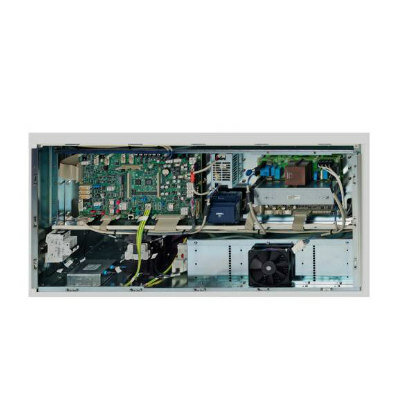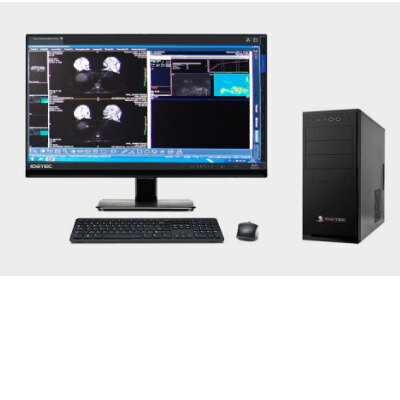Breast MRI Scan Can Determine Need for Radiation Therapy
By MedImaging International staff writers
Posted on 20 Oct 2008
For women whose breast cancer has spread to their lymph nodes, a magnetic resonance imaging (MRI) scan could soon replace exploratory surgery as the method for determining whether those women need radiation therapy to treat their disease, according to a recent study.Posted on 20 Oct 2008
In a retrospective study of 167 patients who underwent radiation therapy for invasive breast cancer after surgical staging of their tumors, physician researchers found that the tumors' physiologic information shown on MRI scans correlated with surgically based findings of cancer having spread to lymph nodes. This suggests that breast MRI could help determine if women scheduled to undergo surgery will later need radiation therapy and how much.
The findings are significant because the standard of care for women with breast cancer has evolved during the past five years. In the past, decisions regarding radiation therapy were made after surgery and before chemotherapy, according to lead author Christopher Loiselle, M.D., resident in the department of radiation oncology at the University of Washington (UW) Medical Center (Seattle, USA). Today, increasing numbers of women may be treated with chemotherapy before surgery.
"When you give chemotherapy first, and then perform the surgery to remove the cancer and sample the lymph nodes, you reduce your ability to know whether there was cancer in the axillary [underarm] lymph nodes before the patient was treated with chemotherapy,” Dr. Loiselle said. "This raises the question: is there another way to stage those lymph nodes? Our study showed that tumor characteristics as seen on an MRI scan might be the answer.” The crucial benefit is that some women can be spared radiation therapy, particularly those with smaller tumors and tumors that have not spread to the lymph nodes, according to Dr. Loisells.
A contrast dye commonly used in MRI scans not only highlights the size and location of the tumor but also details the blood vessels feeding the tumor. The kinetics or activity of the contrast dye in the tumor provided some key parameters for comparing MRI to traditional surgical tumor staging, he said. "MRI is evolving rapidly as a diagnostic tool for breast cancer, particularly among women with high risk for the disease, because not only does it give us traditional anatomic information about tumors but information about the biology of the tumor as well,” Dr. Loiselle stated.
Prospective studies will need to be performed to confirm the value of MRI scans in staging tumors for radiation therapy, according to Dr. Loiselle. The study's findings will be presented during the annual meeting of the American Society for Therapeutic Radiology and Oncology (ASTRO), which will be held in Boston, MA, USA, in September 2008.
Related Links:
University of Washington Medical Center














